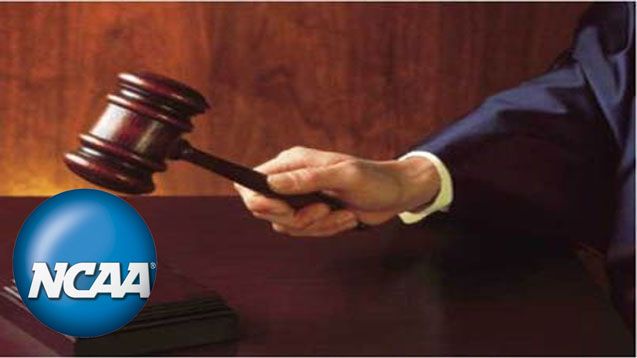Today’s Biggest News Was Out of the Pool

Commentary By George Block
SAN ANTONIO, Texas, March 27, 2014 THE biggest news at the NCAA s happened before anyone hit the water today. A regional director of the National Labor Relations Board (NLRB) ruled that football players at Northwestern University can unionize. Peter Sung Ohr, the NLRB Regional Director, found that the players’ scholarships constitute compensation for a service and that mandatory practices, study halls and class attendance constitute a full-time job. Northwestern immediately announced it planned to appeal.
Northwestern may, indeed, win their appeal, but if we look at social trends over the past 60 years, every cause from school desegregation to voting rights to marriage equality, had overturned rulings on the way to becoming the law of the land. Either college players in the revenue sports will be able to gain some financial compensation, or the scholarship-compensation will have to change.
The NCAA brought this on itself in many ways. By running successful national championships in football for every division except Division I, the NCAA let the lead dog in the sled get away from it. The BCS formed, now a 4-team playoff-plus-bowls, eventually much more. None of it under the control of the NCAA.
Going to 1-year, instead of 4-year, scholarships changed that relationship with student-athletes, making them much easier to “fire” for poor performance or compliance. It also made it much tougher to work with the professional leagues. If a player had signed a 4-year contract, a school could require compensation from the league for an early release to a pro draft. That would have been one avenue to endowing scholarships.
State legislatures should share the blame, as well. Many of them, wanting to shield state universities from financial liability for athletics, prevented tax funds from being used by athletics departments. This both forced athletics departments to become entrepreneurial, while creating independent, parallel corporations outside of the university budgeting process.
The real “blame” lies with the NBA , the NFL and the USOC. Unlike Major League Baseball (MLB), neither the NBA or the NFL have figured out how to monetize their minor leagues. The NBA is getting close. The NBDL is paying small salaries and attracting small crowds. More NBA teams are owning their own NBDL teams and effectively using for both player and coach development.
The NFL has never figured out minor league football, so it has left it to the colleges. Perhaps the NFL could take a page from the NBA and teams could start owning Arena League teams in their marketplace where they could park developmental players.
MLB has a very successful minor league system, with very expensive teams. Baseball players can choose to either to the minor leagues or to college AFTER the professional draft. It has obviously not hurt the College World Series, as Omaha has just built an event-specific facility for the CWS. The NFL and NBA need to step up and make their developmental leagues work, so kids can have the same choice as baseball does coming out of high school: Do I go pro or do I go to college?
Blame, however, is the least of our problems. Whose fault it is doesn’t matter. It is our responsibility. Even if this ruling gets overturned, it needs to be a huge wake-up call for college swimming and American swimming. What would American swimming be without college swimming?
The Warner brothers and their allies, Phil Whitten and Tim Welsh, have been beating the drum for two decades that college coaches have to organize their alumni to endow the scholarships at their universities — especially for men’s swimming. Many ADs have told their coaches “You don’t have to worry,” because the ADs didn’t want encumbered funds. Endowing scholarships needs to move to the top of the national swimming agenda — Now.
There are some other tactics that I will talk about over the next couple of days, but first-tings-first. The house is on fire.



